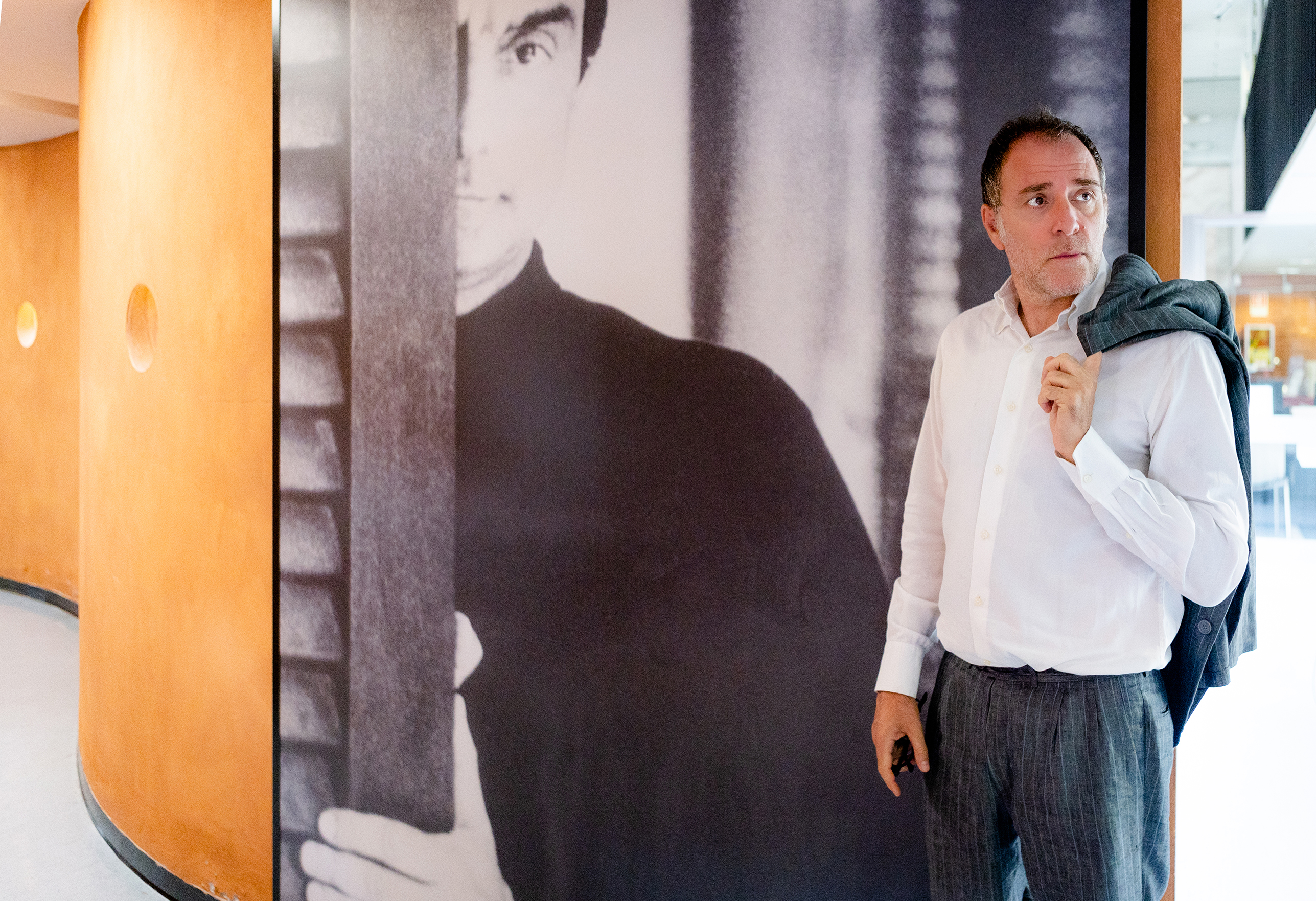Nel centenario della nascita di Italo Calvino, il regista Davide Ferrario ripercorrerà la vita dello scrittore, attraverso il legame con le città in cui ha vissuto, lavorato, o da cui è rimasto suggestionato nei suoi viaggi da cui il nome di Città "Visibili" e quelle "Invisibili", frutto della sua immaginazione. Le prime saranno narrate con un impianto tradizionale, usando in modo creativo riprese dal vivo, immagini di repertorio, interviste originali e testi di Calvino narrati dal racconto di un attore che ci accompagnerà nei luoghi, guidandoci nelle città visibili. Le seconde saranno invece messe in scena in modo più cinematografico, interpretate da un'attrice che si muoverà in scenari astratti. I due livelli convergeranno verso un finale che propone un nuovo salto visivo ed emotivo: una Cosmicomica raccontata con l'animazione, in cui una New York quasi realistica si proietta nello spazio insieme alla Luna e all'Utopia.
Italo Calvino nelle città è un film sui generis, al punto da sfuggire alla classica definizione di documentario. Si tratta dell'interpretazione per immagini di un mondo che è finora vissuto solo sulla pagina. Una libera messa in scena che piuttosto che "spiegare" Italo Calvino cercherà di farlo vivere per lo spettatore nella sua unìcità e originalità. Calvino è uno scrittore e la sua forma di espressione artistica è la parola. Ma, come ben dimostra il coautore, Marco Belpoliti, l'atto del guardare e quindi il rapporto con le immagini è centrale nell'ispirazione di Calvino. Ecco allora che la ragione per fare un film su di lui e sulle sue opere diventa meno arbitraria. Forse è proprio il cinema che può aprirci una strada per vedere meglio dentro l'ispirazione di Calvino Che è sì - e inevitabilmente - letteraria, ma che è anche unica e originale nel campo della storia della letteratura italiana.
Soggetto
Marco Belpoliti, Davide Ferrario
Sceneggiatura
Marco Belpoliti, Davide Ferrario
Fotografia
Andrea Zanoli, Andrea Zambelli
Interpreti
Valerio Mastandrea, Alessio Vassallo, Filippo Scotti e la partecipazione straordinaria di Violante Placido
Organizzatore generale
Flavia Pasquini
Produzione esecutiva
Salvatore Sansonetti
Produttore
Gloria Giorgianni
Produzione
Anele, con Rai Cinema, Luce Cinecittà, RS Productions
con il sostegno di Film Commission Torino Piemonte -
Piemonte Doc Film Fund - produzione giugno 2023; Ministero della Cultura - Direzione Generale Cinema e Audiovisivo
